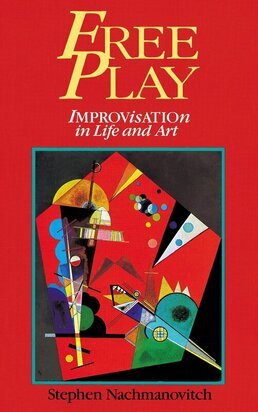Four Books For Creatives With Work To Do
This month I tackled some books that I have been saving for when I could really take my time and dig in to them. Many of them were about the creative process, some were about yoga/meditation/breathwork/mindstate, and a few were novels I wanted to savor.
I've made it most of the way through this month's to-be-read pile, and it just so happened that I read three books about developing the creative process back to back. I found them all interesting - worthwhile in their own way - but not created equal, and thought it would be fun to break them down here since I am in the midst of what feels like a mini-evolution of my own work process (pictured below during my stay at the Endless Mountain Music Festival).
The first book I read was one I have been saving and looking forward to - it has a beautiful cover, the layout is inviting, and I was expecting a lot of nuggets of inspiration from this one, based on what I had heard about it so far.
The Creative Act: A Way of Being by Rick Rubin
If I'm being really honest, I was totally disappointed in this book. If you have never read anything about the creative process, I actually think it would make a great, easy to digest introduction. But if you are a seasoned creative, this book falls flat for inspiration. It's full of platitudes and empty statements about creativity, and doesn't contain any truly actionable ideas about the creative act as the title suggests. It might be a nice to book to leave out and flip open if you're in need of a shot of motivation, but it definitely didn't live up to my expectations for an author with such an interesting and varied career.
I originally shared these reviews in my monthly newsletter (have you subscribed yet?), and realized after it went out that I completely forgot one of the books I read about the creative process. I suppose it didn't make much of an impression...
The War of Art: Break Through the Blocks and Win Your Inner Creative Battles by Steven Pressfield
I liked this book more than Rubin's Creative Act, and while it did have some useful nuggets of reflection on the things that keep us from moving forward creatively, it didn't break down any major thought barriers for me around my own creative process. Like Rubin's book, however, I think this could provide a good stepping off point for creatives who haven't explored outside inspiration for how they could approach their work.
One thing I think Pressfield did well was share openly the distractions we face and the need for discipline and intention around our work. I appreciated the portion of the book about the resistance we all feel the most.
The Creative Habit: Learn It And Use It For Life by Twyla Tharp
This book surprised me in its practicality. I didn't know more than the basics about Tharp before reading this, and was impressed at the discipline of her creativity. It's always interesting to catch a glimpse behind the curtain into a successful creative's life, and this was no exception. Tharp discusses her own habits and disciplines, how specific projects came to life, and provides exercises for the reader to consider what matters most to them and to help lay the ground work for better creative habits. Both practical and interesting, I think this one is a must read if you are interested in strengthening the creative acts in your own life.
Free Play: Improvisation in Life and Art by Stephen Nachmanovitch
I had procrastinated reading this book even though it was recommended by one of my absolute favorite newsletters because I wasn't sure how much it would be about the actual act of improvisation (something I avoid like most classically trained musicians!). Although improvisation is discussed, the book is truly about how we create and quickly became a new favorite for me. It is relatable and inspiring, and somehow takes a huge, ambitious topic and boils it down into useful, encouraging, and relatable ways to address blocks and the way we think about creativity. As I read, I found myself writing in the margins and dog-earing pages the entire time. While not as clinically practical as Tharp's Creative Habit, Free Play is what finally helped me start to shift out of my own creative rut.
The most important takeaway for me is that we're all at different stages of our creative journeys and processes. Even though I didn't love Rubin's Creative Act, it felt useful to read these four books in succession, although unintentionally. They are an excellent representation of how differently we all approach creativity, and a reminder that we won't relate to everyone's art or approach to making it. But for the same reason that we study our instruments with many teachers and rarely love every single thing they ask us to do. There are useful takeaways everywhere if you are being vigilant, even if they are simply things you are making a note that don't want to replicate (right now). Just like we each have a unique voice in our music or art, our methods in the end will, and should, be unique to us.




